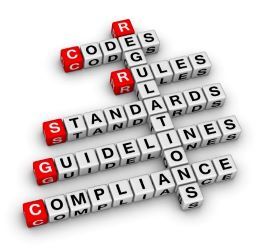This blog post informs my current literature review for my PhD research: ‘a critical analysis on the role and influence of character education on young pupils in Birmingham schools.’ Character education is nebulous and contested: this blog will explore the development of character education policy within the UK and the way it has had an impact on school's implementation of character.
This blog addresses the way character education is shaped in policy and practice. Governments around the world (from East Asia, USA, Australia and UK) have started to recognise the need to support, nurture and encourage virtues within all age groups of young people through the teachings of character (Arthur, 2014). Character denotes an individual’s moral qualities, positive habits and virtues (Kristjánsson, 2015; Sayer, 2020). In the United Kingdom, character education became part of British education policy between 1979 and 1997 by the Conservative government; this was an attempt to undo a perceived decline in moral standards and thus getting schools to provide moral and curricular developments (Arthur, 2014).
The move towards moral development in schools was further developed by the Labour party in 2001 through the inclusion of citizenship and personal development to raise students' performance, meet requirements of future economy and encourage democratic cooperation (Whiteley, 2014). Yet, there is also an underlying rationale that character education is a political movement that focuses on transferring neoconservative ideals to neo-liberal citizens (Bates, 2017; Bradbury, 2019). This stems from Conservative governments investment in teaching ‘character’, ‘resilience’ and ‘grits’ to pupils in schools. Taylor (2018) and Spohrer (2021) suggest that a ‘business case’ model is being promoted with a direct focus on moral education by connecting personal traits, attitudes and skills to human capital, social mobility and employability.
In the Government’s, ‘Educational Excellence Everywhere’, character education prepares young people for adult life in 21st century society by teaching character traits and British values to help them succeed (DfE, 2016). Nonetheless, attempting to measure ‘success’ through the restrictive virtues like resilience and girt which do not embody any specific goal can be at the expense of young people’s autonomy and well-being as character becomes a conveyance for ‘psycho-economic’ well-being (Alfano, 2016; Bates 2017; Peterson, 2019). Therefore, we should be critical of these changes to current educational policy which has moved to champion certain virtue-based education to promote personal ethics.
Nonetheless, it is possible to create an inclusive and comprehensive character education program that could educate the whole individual within a healthy setting (Marshall et al., 2011). Education has historically been synonymous with moral enterprise where there is a deliberate and continuous attempt to support students to know and implement what is good and worthwhile (Ryan et al., 1996; Tichnor-Wagner et al., 2016). Thus, teachings of values and moral education in UK schools and academies continue to be very popular (Vincent, 2018). Schools shape young people’s character so they can develop independent, rational, informed moral decisions and create their own moral frameworks (Halstead and Taylor, 2000; Arthur et al., 2015). It is argued that character education can facilitate creating skilled workers that can have a good standard of living (Williams, 2000; Althof and Berkowitz, 2006).
Character education can also be used as a tool that can go beyond ‘personal ethics’ but may aid in overcoming and preventing behavioural complications that arise from anti-social behaviour and concerns that originate from poor academic motivation and truanting (Brooks and Kann, 1993; Cassell, 1995; Was et al., 2006). Thus, Watts et al., (2021) and Sayer (2021) emphasise that character education policy and practice should resonate with current social and societal changes, so that pupils can foster a range of human relationships that are in-line with such progress.

Therefore, as a researcher and a teacher I am intrigued to explore how character education policy affects the teaching of character within schools and perceptions held by teachers and senior leadership.
Yet, the question remains whether schools embody or do not embody the neo-liberal ideals character education is built on within the UK?
Therefore, my research will use methodological approaches such as observations of classroom practice and interviews of teachers and senior leadership teams, to gain insight into the application of character in practice and perceptions.
References
Alfano, M. (2016) Moral Psychology: An Introduction. Cambridge: Polity.
Althof, W. and Berkowitz*, M.W. (2006) Moral education and character education: their relationship and roles in citizenship education. Journal of Moral Education, 35 (4): 495–518. doi:10.1080/03057240601012204.
Arthur, J. (2014) “Traditional Approaches to Character Education in Britain and America .” In Nucci, L., Naravez, D. and Krettenauer, T. (eds.) Handbook of Moral and Character Education. 2nd ed. London: Routledge.
Arthur, J., Kristjánsson, K., Walker, D., et al. (2015) Character Education in UK Schools. Birmingham. Available at: http://epapers.bham.ac.uk/1969/1/Character_Education_in_UK_Schools.pdf (Accessed: 15 March 2022).
Bates, A. (2017) The management of ‘emotional labour’ in the corporate re-imagining of primary education in England. International Studies in Sociology of Education, 26 (1): 66–81. doi:10.1080/09620214.2016.1175959.
Bradbury, A. (2019) Making little neo-liberals: The production of ideal child/learner subjectivities in primary school through choice, self-improvement and ‘growth mindsets.’ Power and Education, 11 (3): 309–326. doi:10.1177/1757743818816336.
Brooks, B.D. and Kann, M.E. (1993) What makes character education programs work? . Educational Leadership, 51 (3): 19–21.
Cassell, J. (1995) Improving Self-Control in Upper Elementary Students through a Program of Character, Civic, and Social Education. Nova University. Available at: https://files.eric.ed.gov/fulltext/ED386634.pdf (Accessed: 11 March 2022).
Department for Education (2016) Educational Excellence Everywhere. Available at: https://assets.publishing.service.gov.uk/government/uploads/system/uploads/attachment_data/file/508447/Educational_Excellence_Everywhere.pdf (Accessed: 15 February 2022).
Halstead, J.M. and Taylor, M.J. (2000) Learning and Teaching about Values: A review of recent research. Cambridge Journal of Education, 30 (2): 169–202. doi:10.1080/713657146.
Kristjánsson, K. (2015) Aristotelian character education. London: Routledge.
Marshall, J.C., Caldwell, S.D. and Foster, J. (2011) Moral education the character. Journal of Moral Education, 40 (1): 51–72. doi:10.1080/03057240.2011.541770.
Peterson, A. (2020) Character education, the individual and the political. Journal of Moral Education, 49 (2): 143–157. doi:10.1080/03057240.2019.1653270.
Ryan, K., Bohlin, K. and Thayer, J. (1996) Character Education Manifesto. Available at: https://www.bu.edu/ccsr/about-us/partnerships/character-education-manifesto/ (Accessed: 11 March 2022).
Sayer, A. (2020) Critiquing – and Rescuing – ‘Character.’ Sociology, 54 (3): 460–481. doi:10.1177/0038038519892532.
Spohrer, K. (2021) Resilience, self-discipline and good deeds – examining enactments of character education in English secondary schools. Pedagogy, Culture & Society, pp. 1–20. doi:10.1080/14681366.2021.2007986.
Taylor, N. (2018) The Return of Character: Parallels Between Late-Victorian and Twenty-First Century Discourses. Sociological Research Online, 23 (2): 399–415. doi:10.1177/1360780418769679.
Tichnor-Wagner, A., Coleman, H., Bohlin, K., et al. (2016) Promising Practices for Character Education and Educational Leadership: A Report of the Kern Partners for Character Education and Leadership. Boston.
Vincent, C. (2018) Civic virtue and values teaching in a ‘post-secular’ world. Theory and Research in Education, 16 (2): 226–243. doi:10.1177/1477878518774128.
Was, C.A., Woltz, D.J. and Drew, C. (2006) Evaluating character education programs and missing the target: A critique of existing research. Educational Research Review, 1 (2): 148–156. doi:10.1016/j.edurev.2006.08.001.
Watts, P., Fullard, M. and Peterson, A. (2021) Understanding Character Education and Personal Development: Approaches, Issues and Applications. London: McGraw-Hill Education.
Whiteley, P. (2014) Does Citizenship Education Work? Evidence from a Decade of Citizenship Education in Secondary Schools in England. Parliamentary Affairs, 67 (3): 513–535. doi:10.1093/pa/gss083.
Williams, M.M. (2000) Models of Character Education: Perspectives and Developmental Issues. The Journal of Humanistic Counselling, Education and Development, 39 (1): 32–40. doi:10.1002/j.2164-490X.2000.tb00091.x.

